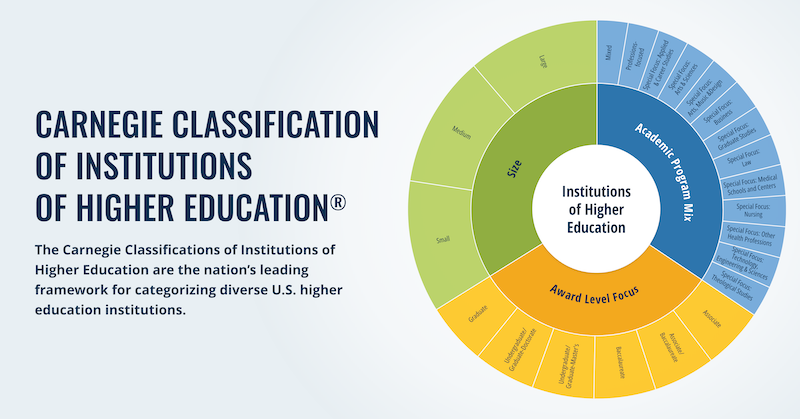There Is More to College Success Than Test Scores and Lesson Plans: Carnegie’s Focus on “Productive Persistence”
Why do some college students persist while others don’t? David Levin asked this question about the alumni of the Knowledge is Power Program (KIPP)—a network of urban charter schools. Instead of focusing on students’ test scores or college professors’ instructional styles, he found something different. Students who were successful “were the ones who were able to recover from a bad grade and resolve to better next time. …” That is, they weren’t just the ones who were “naturally smart.” Levin, who is co-founder of KIPP, and his ideas were the focus of a recent New York Times Sunday Magazine article, “The Character Test: Why our kids’ success—and happiness—may depend less on perfect performance than on learning how to deal with failure.” Optimism, persistence and social intelligence, according to the article, are the habits and mindsets that “seemed indispensable” to enable students who were from families without a lot of family resources to graduate from college. These characteristics help students navigate the transition from high school to college by helping them to bounce back from the new challenges that inevitably come up in college.
What are the characteristics that help students succeed and how can we promote them? Many psychologists have contributed to this question. Carnegie uses the term “productive persistence” to summarize these good ideas and to apply them to our initiative to improve student success in developmental mathematics in community colleges.
We do this because the work of social and developmental psychologists has convinced us that improved curricula and instruction are not sufficient to dramatically improve college-level math completion rates. Many students work hard in developmental math classes—studying long hours, nights and weekends—yet do so using ineffective strategies. Other students simply withdraw effort soon after the course begins. To help more students successfully complete the Carnegie initiated math pathways, we want them to both persist in their studying and attendance (tenacity) and to do so efficiently and effectively (good strategies). Productive persistence is core to our work.
We recognize that in addition to pedagogical improvements, student motivation, engagement and skills must also be attended to. Students placed in developmental math often come to the classroom with what our colleague from UCLA, Carnegie Senior Fellow Jim Stigler, calls “math scar tissue”—or the residue of years of failure in mathematics courses. Such past failures can ossify and produce in students a belief that their mathematical ability is fixed and not improvable, thereby undermining their motivation following setbacks or failures. Students may also have crippling math anxiety that results in worsening cycles of procrastination and low performance, or they may lack basic study skills for successfully completing their work. Moreover, because many community colleges are heterogeneous commuter campuses, students may feel only a weak sense of connection to their peers, to faculty, or to their institution. In the absence of these ties, motivation to attend and persist may suffer.
We believe that these mindsets, skills and social relationships can prevent student success. We also believe that when efforts are made to improve them, then the impact of otherwise effective curricula can be made manifest. In effect, we aim to do what our Senior Fellow Uri Triesman calls “reclaiming students’ mathematical lives.” We are committed to understanding the social and psychological drivers of developmental math student success and using our improvement processes to design and deliver effective interventions to address them.
In a recent Gates-funded white paper on “Academic Tenacity” by Carol Dweck, Geoffrey Cohen, and Gregory Walton of Stanford University, successful motivation is described as:
Students are engaged in learning, view effort positively, and are able and willing to forego immediate pleasures for the sake of schoolwork. For example, they seek challenging tasks that will help them learn new things, rather than tasks well within their comfort zone where they do not have to work hard or risk failure. Next, difficulty (confusion, setbacks, failures) does not derail them. They see a setback as an opportunity for learning or a problem to be solved rather than as a humiliation, a condemnation of their ability, a symbol of future failures, or a confirmation of their identity as a non-student. This is true at the level of a given task and at the level of their studies in general–they know how to remain engaged over the long haul and how to deploy new strategies for moving forward effectively.
Keeping these factors in mind, Carnegie’s new math pathways include specific activities, support systems, and pedagogical approaches designed to encourage and build these skills and mindsets in order to increase a student’s self-efficacy, motivation, persistence, and ability to navigate college.
July 8, 2011
LESSONS LEARNED FROM MATHEMATICS AND DEMOCRACY “Indeed, as the twenty-first century unfolds, quantitative literacy will come to be seen not just as a minor variation in the way we functioned in the twentieth century but as a radically transformative vantage point from which to view education, policy, and work.” Mathematics…
October 11, 2011
For many years, educational researchers have worked with program designers and implementers in pursuit of what has been called fidelity of implementation. Simply put, this has involved the application of numerous tools and procedures designed to ensure that implementers replicate programs exactly as they were designed and intended. There is…







